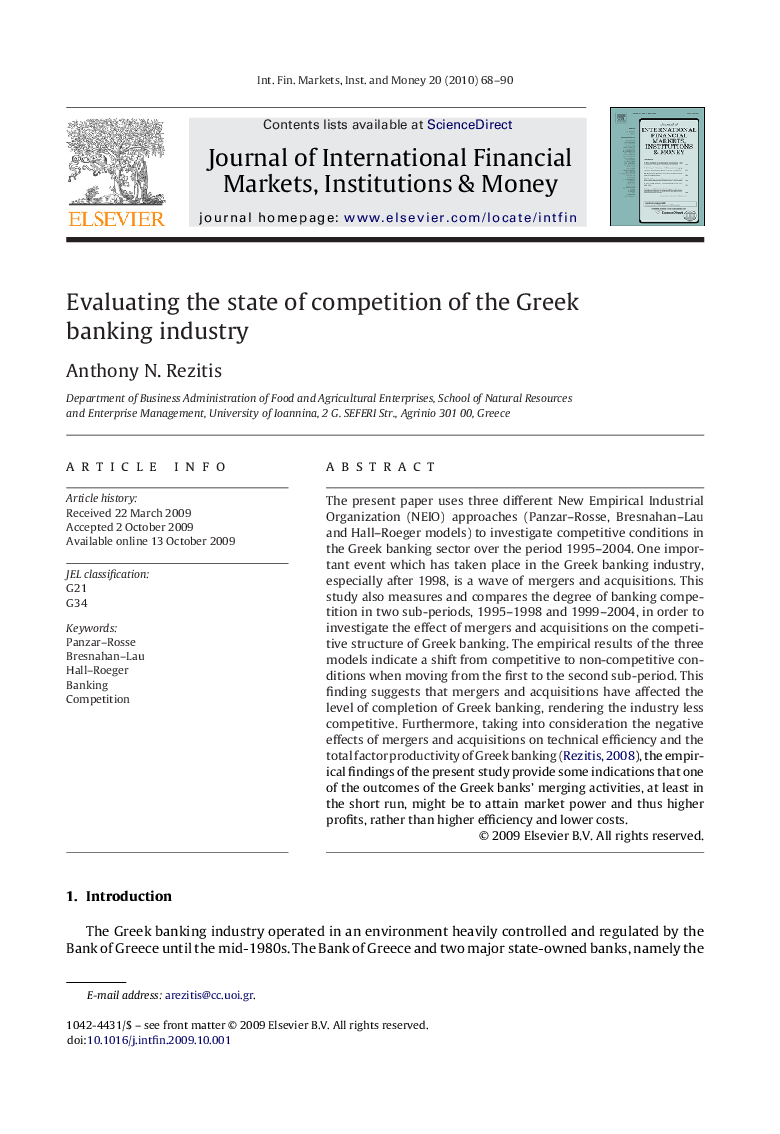| Article ID | Journal | Published Year | Pages | File Type |
|---|---|---|---|---|
| 963604 | Journal of International Financial Markets, Institutions and Money | 2010 | 23 Pages |
Abstract
The present paper uses three different New Empirical Industrial Organization (NEIO) approaches (Panzar-Rosse, Bresnahan-Lau and Hall-Roeger models) to investigate competitive conditions in the Greek banking sector over the period 1995-2004. One important event which has taken place in the Greek banking industry, especially after 1998, is a wave of mergers and acquisitions. This study also measures and compares the degree of banking competition in two sub-periods, 1995-1998 and 1999-2004, in order to investigate the effect of mergers and acquisitions on the competitive structure of Greek banking. The empirical results of the three models indicate a shift from competitive to non-competitive conditions when moving from the first to the second sub-period. This finding suggests that mergers and acquisitions have affected the level of completion of Greek banking, rendering the industry less competitive. Furthermore, taking into consideration the negative effects of mergers and acquisitions on technical efficiency and the total factor productivity of Greek banking (Rezitis, 2008), the empirical findings of the present study provide some indications that one of the outcomes of the Greek banks' merging activities, at least in the short run, might be to attain market power and thus higher profits, rather than higher efficiency and lower costs.
Keywords
Related Topics
Social Sciences and Humanities
Economics, Econometrics and Finance
Economics and Econometrics
Authors
Anthony N. Rezitis,
